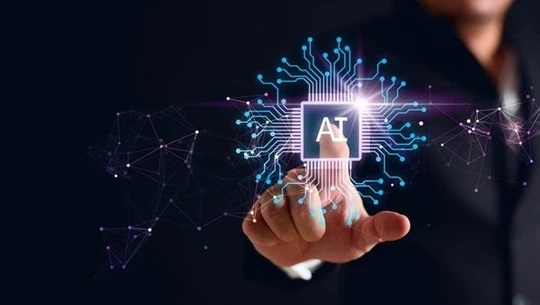
The Science and Technology Ministry has issued guidelines
for the responsible development of AI systems, promoting a human-centered
society where everyone benefits from AI.
Accordingly, the Ministry of Science and Technology has just released its Decision 1290/QD-BKHCN about guiding a number of principles on research and development of responsible AI systems that are aimed at a human-centered society where there is a reasonable balance between the benefits and risks of AI systems.
AI technology is now considered the core when digital technology is increasingly dominating social life as well as economic development. Many Vietnamese enterprises, such as FPT, Viettel, VNG, and VNPT have all affirmed that AI is the foundation and opportunity for Vietnam to develop technology on par with the world in the near future. AI can support and solve tough problems that people and communities are facing in the country at present.
Both domestic and foreign experts in the field agree that AI system research and development in Vietnam must fulfill the goal of creating a human-centered society, where everyone benefits from these AI systems while still ensuring a reasonable balance between benefits and risks.
The benefits of AI must be promoted via research, development and innovation activities and minimize the risk of violating the rights or legitimate interests of organizations and individuals.
This calls for the urgent need to form an ethical code to promote responsible AI development, which will in turn build user and social trust in AI systems that are being applied in all aspects of life in the face of unpredictable impacts and risks, as said by Prof Dr Andy Hall from the Commonwealth Scientific and Industrial Research Organisation (CSIRO – Australia). AI development is fraught with risks and uncertainties, so "responsible innovation" needs to be based on the proactive choice of safe, ethical and socially appropriate technologies.
Assoc Prof Dr Nguyen Thi Que Anh – President of the Law University under Vietnam National University-Hanoi – shared that the strong development of AI is raising concerns about potential risks and impacts on society when AI applications violate ethical and legal standards such as algorithms able to cause bias, discrimination, invasion of privacy and personal data.
Nevertheless, most experts commented that at this stage, legal documents should be under the form of optional guidelines that encourage the development and application of standards and practical procedures based on international recommendations as a foundation to promote research, development and use of AI systems. In all cases, they are used to promote dialogues and discussions among stakeholders in the AI system.
Meanwhile, the principles and guidelines for the development and application of AI will continue to be researched and updated to suit practical conditions.

 Previous page
Previous page Back to top
Back to top







